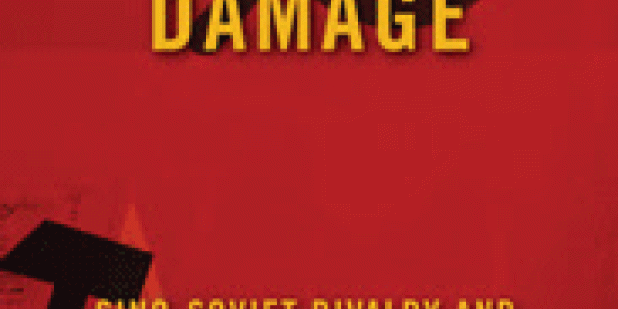Join us for a free one-day workshop for educators at the Japanese American National Museum, hosted by the USC U.S.-China Institute and the National Consortium for Teaching about Asia. This workshop will include a guided tour of the beloved exhibition Common Ground: The Heart of Community, slated to close permanently in January 2025. Following the tour, learn strategies for engaging students in the primary source artifacts, images, and documents found in JANM’s vast collection and discover classroom-ready resources to support teaching and learning about the Japanese American experience.
Nicholas Khoo, Collateral Damage: Sino-Soviet Rivalry and the Termination of the Sino-Vietnamese Alliance (1964-1991)
The Sigur Center hosts a discussion of China's Cold War alliances and policies from 1962 to 1991
Where

The termination of the Sino-Vietnamese alliance and subsequent border war of 1979 was a pivotal development during the Cold War, at once reflecting and deepening divisions within the communist bloc. The fundamental cause of this development remains a continuing source of debate among area studies specialists, political scientists and historians who study the Cold War. This presentation, based on the author's previously published book on the topic, utilizes Chinese language materials released since the end of the Cold War to offer an alternative to existing explanations in the literature. Here, it is argued that Vietnamese co-operation with China's principal enemy during the second-half of the Cold War, the Soviet Union, was the critical determinant in explaining the termination of the Sino-Vietnamese alliance.
Dr. Nicholas Khoo (PhD Columbia, MA SAIS, Johns Hopkins, BA University of California) is a Senior Lecturer in the Department of Politics at the University of Otago in New Zealand. His research specialization focuses on Chinese foreign policy, the international relations of Asia and international relations theory. He is author of Collateral Damage: Sino-Soviet Rivalry and the Termination of the Sino-Vietnamese Alliance (New York: Columbia University Press, 2011), and co-author (with David Martin Jones and Michael Rainsborough) of Asian Security and the Rise of China: International Relations in an Age of Volatility (Cheltenham, UK: Edward Elgar, 2013)
Featured Articles
Please join us for the Grad Mixer! Hosted by USC Annenberg Office of International Affairs, Enjoy food, drink and conversation with fellow students across USC Annenberg. Graduate students from any field are welcome to join, so it is a great opportunity to meet fellow students with IR/foreign policy-related research topics and interests.
RSVP link: https://forms.gle/1zer188RE9dCS6Ho6
Events
Hosted by USC Annenberg Office of International Affairs, enjoy food, drink and conversation with fellow international students.
Join us for an in-person conversation on Thursday, November 7th at 4pm with author David M. Lampton as he discusses his new book, Living U.S.-China Relations: From Cold War to Cold War. The book examines the history of U.S.-China relations across eight U.S. presidential administrations.




